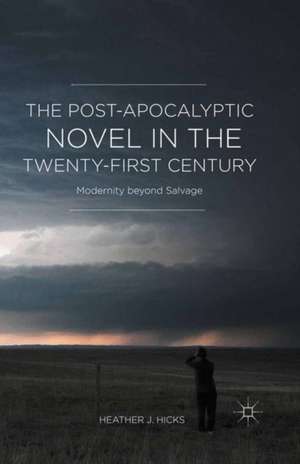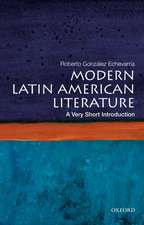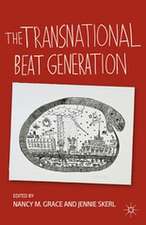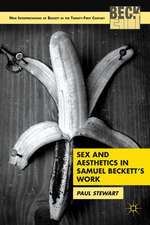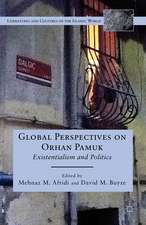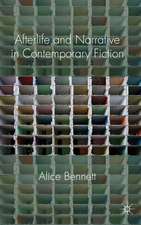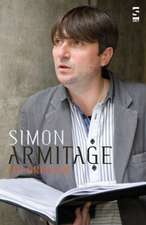The Post-Apocalyptic Novel in the Twenty-First Century: Modernity beyond Salvage
Autor H. Hicksen Limba Engleză Paperback – 18 mar 2016
| Toate formatele și edițiile | Preț | Express |
|---|---|---|
| Paperback (1) | 381.43 lei 6-8 săpt. | |
| Palgrave Macmillan US – 18 mar 2016 | 381.43 lei 6-8 săpt. | |
| Hardback (1) | 498.79 lei 6-8 săpt. | |
| Palgrave Macmillan US – 16 ian 2016 | 498.79 lei 6-8 săpt. |
Preț: 381.43 lei
Nou
Puncte Express: 572
Preț estimativ în valută:
72.99€ • 79.53$ • 61.50£
72.99€ • 79.53$ • 61.50£
Carte tipărită la comandă
Livrare economică 23 aprilie-07 mai
Preluare comenzi: 021 569.72.76
Specificații
ISBN-13: 9781349716494
ISBN-10: 1349716499
Pagini: 208
Ilustrații: IX, 208 p.
Dimensiuni: 140 x 216 mm
Greutate: 0.26 kg
Ediția:1st ed. 2016
Editura: Palgrave Macmillan US
Colecția Palgrave Macmillan
Locul publicării:New York, United States
ISBN-10: 1349716499
Pagini: 208
Ilustrații: IX, 208 p.
Dimensiuni: 140 x 216 mm
Greutate: 0.26 kg
Ediția:1st ed. 2016
Editura: Palgrave Macmillan US
Colecția Palgrave Macmillan
Locul publicării:New York, United States
Cuprins
Introduction: Beyond Salvage
1. The Mother of All Apocalypses in Margaret Atwood's Oryx and Crake
2. 'This Time Round': David Mitchell's Cloud Atlas and the Apocalyptic Problem of Historicism
3. Friday at the End of the World: Apocalyptic Change and the Legacy of Robinson Crusoe in Cormac McCarthy's The Road and Jeanette Winterson's The Stone Gods
4. 'Stop! Can You Hear the Eagle Roar?': Zombie Kitsch and the Apocalyptic Sublime in Colson Whitehead's Zone One
5. 'The Raw Materials': Petromodernity, Retromodernity and the Bildungsroman in Paolo Bacigalupi's Ship Breaker
Conclusion
1. The Mother of All Apocalypses in Margaret Atwood's Oryx and Crake
2. 'This Time Round': David Mitchell's Cloud Atlas and the Apocalyptic Problem of Historicism
3. Friday at the End of the World: Apocalyptic Change and the Legacy of Robinson Crusoe in Cormac McCarthy's The Road and Jeanette Winterson's The Stone Gods
4. 'Stop! Can You Hear the Eagle Roar?': Zombie Kitsch and the Apocalyptic Sublime in Colson Whitehead's Zone One
5. 'The Raw Materials': Petromodernity, Retromodernity and the Bildungsroman in Paolo Bacigalupi's Ship Breaker
Conclusion
Recenzii
“Hicks survey is potentially overwhelming. One can readily sympathize with these critics’ leeriness towards tidy solutions to such massive and systemic dangers.” (Derek C. Maus, Orbit, Vol. 7 (1), 2019)
“This is a book about the decline of the nation-state, the different ways to understand time, the many potential faces of human slavery, the evolving aesthetic of the sublime, the muddled balance sheet of postmodernism and dehumanizing labor, the power of language, the threat of human ignorance, and the seeming omnipresence of war. Summing Up: Recommended. Lower-division undergraduates and above.” (P. L. Redditt, Choice, Vol. 54 (4), December, 2016)
“This is a book about the decline of the nation-state, the different ways to understand time, the many potential faces of human slavery, the evolving aesthetic of the sublime, the muddled balance sheet of postmodernism and dehumanizing labor, the power of language, the threat of human ignorance, and the seeming omnipresence of war. Summing Up: Recommended. Lower-division undergraduates and above.” (P. L. Redditt, Choice, Vol. 54 (4), December, 2016)
Notă biografică
Heather J. Hicks is Associate Professor of English at Villanova University, USA. She is author of The Culture of Soft Work: Labor, Gender and Race in Postmodern American Narrative and has published in several journals including Postmodern Culture, Arizona Quarterly, Camera Obscura, and Contemporary Literature.
Textul de pe ultima copertă
Since the beginning of the twenty-first century, major Anglophone authors have flocked to a literary form once considered lowbrow 'genre fiction': the post-apocalyptic novel. Calling on her broad knowledge of the history of apocalyptic literature, Hicks examines the most influential post-apocalyptic novels written since the beginning of the new millennium, including works by Margaret Atwood, David Mitchell, Cormac McCarthy, Jeanette Winterson, Colson Whitehead, and Paolo Bacigalupi. Situating her careful readings in relationship to the scholarship of a wide range of historians, theorists, and literary critics, she argues that these texts use the post-apocalyptic form to reevaluate modernity in the context of the new century's political, economic, and ecological challenges. In the immediate wake of disaster, the characters in these novels desperately scavenge the scraps of the modern world. But what happens to modernity beyond these first moments of salvage? In a period when postmodernism no longer defines cultural production, Hicks convincingly demonstrates that these writers employ conventions of post-apocalyptic genre fiction to reengage with key features of modernity, from historical thinking and the institution of nationhood to rationality and the practices of literacy itself.
